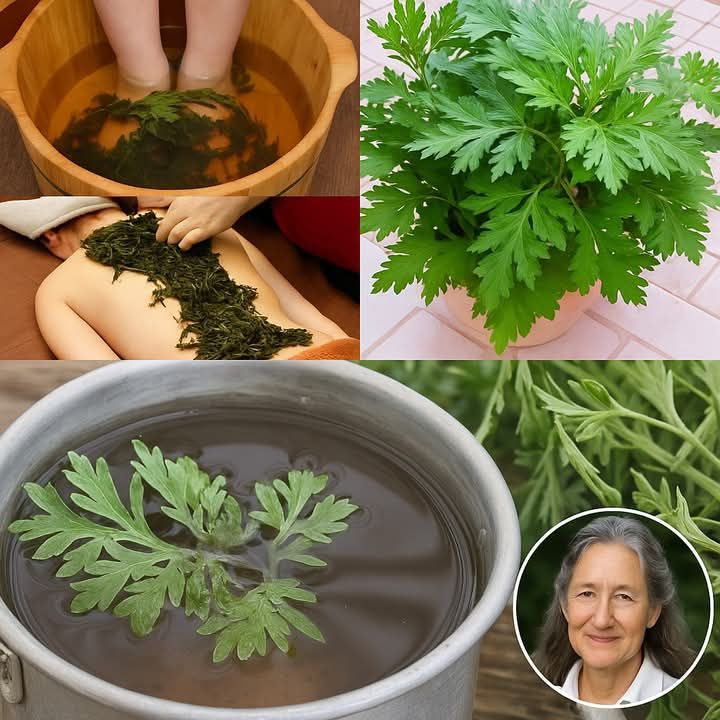Introduction
Wormwood. The name itself conjures images of ancient rituals and potent concoctions. This herb, steeped in history and folklore, has captivated and sometimes frightened people for centuries. From its use in the infamous absinthe to its potential medicinal properties, wormwood boasts a fascinating, albeit complex, story. Let’s unravel some of the secrets surrounding this enigmatic plant.
<!– 
Wormwood: A History Shrouded in Mystery
Wormwood (Artemisia absinthium) isn’t just another plant; it’s a plant with a past. Its use dates back to ancient Egypt, where it was employed for its medicinal properties. The Greeks and Romans also recognized its value, using it for everything from intestinal worms (hence the name!) to stimulating appetite. But it’s in more recent history that wormwood’s story truly takes flight.
<!– 
The Rise (and Fall) of Absinthe
Perhaps the most well-known association with wormwood is its role in the creation of absinthe, a potent, green-colored spirit that became wildly popular in 19th-century Europe. Absinthe, often romanticized as the drink of artists and writers, was believed to inspire creativity and offer heightened sensory experiences. Think Van Gogh and Toulouse-Lautrec – they were fans! However, the drink’s high alcohol content and the presence of thujone, a compound found in wormwood, led to widespread concern about its potential psychoactive and addictive effects. This eventually led to bans in many countries.
<!– 
Wormwood in Traditional Medicine
Beyond its alcoholic associations, wormwood has a long history of use in traditional medicine across various cultures. It has been used for:
- Digestive Issues: Historically, wormwood has been used to stimulate digestion, relieve bloating, and eliminate intestinal parasites.
- Anti-inflammatory Properties: Some traditions have used it topically to reduce inflammation and ease pain.
- Wound Healing: In certain cultures, wormwood preparations were applied to wounds to promote healing.
<!– 
The Science Behind Wormwood
While anecdotal evidence and traditional uses abound, what does modern science say about wormwood? Research is ongoing, but some studies suggest potential benefits. It’s important to remember that many studies are preliminary and more research is needed.
<!– 
Thujone: The Controversial Compound
Thujone is arguably the most talked-about component of wormwood. It acts on GABA receptors in the brain. Too much thujone can be dangerous. Modern absinthe production is regulated to limit thujone levels, aiming to minimize potential adverse effects. However, its role in the overall effects of wormwood is still being studied.
<!– 
Potential Health Benefits (and Cautions)
While more research is necessary, some studies suggest potential benefits. A meta-analysis published in the *Journal of Ethnopharmacology* showed that wormwood may possess anti-inflammatory and anti-parasitic properties. Other studies have explored its potential in managing Crohn’s disease. However, it’s crucial to approach wormwood with caution:
- Consult a Healthcare Professional: Always speak with your doctor or a qualified herbalist before using wormwood, especially if you have any underlying health conditions or are taking medication.
- Dosage Matters: Wormwood is potent. Use it in moderation and follow recommended dosages.
- Not for Everyone: Wormwood is not recommended for pregnant or breastfeeding women, or individuals with certain neurological conditions.
<!– 
Conclusion
Wormwood, the ancient herb that knows too many secrets, continues to fascinate and intrigue. From its intoxicating role in absinthe’s past to its potential health benefits being explored today, this plant has a rich and complex story to tell. While its potent nature demands respect and careful consideration, understanding its history and potential offers a deeper appreciation for the power and complexity of the natural world. Always remember to consult with a healthcare professional before incorporating wormwood into your wellness routine. Perhaps you’ll discover some of wormwood’s secrets for yourself, responsibly and safely.
<!– 
